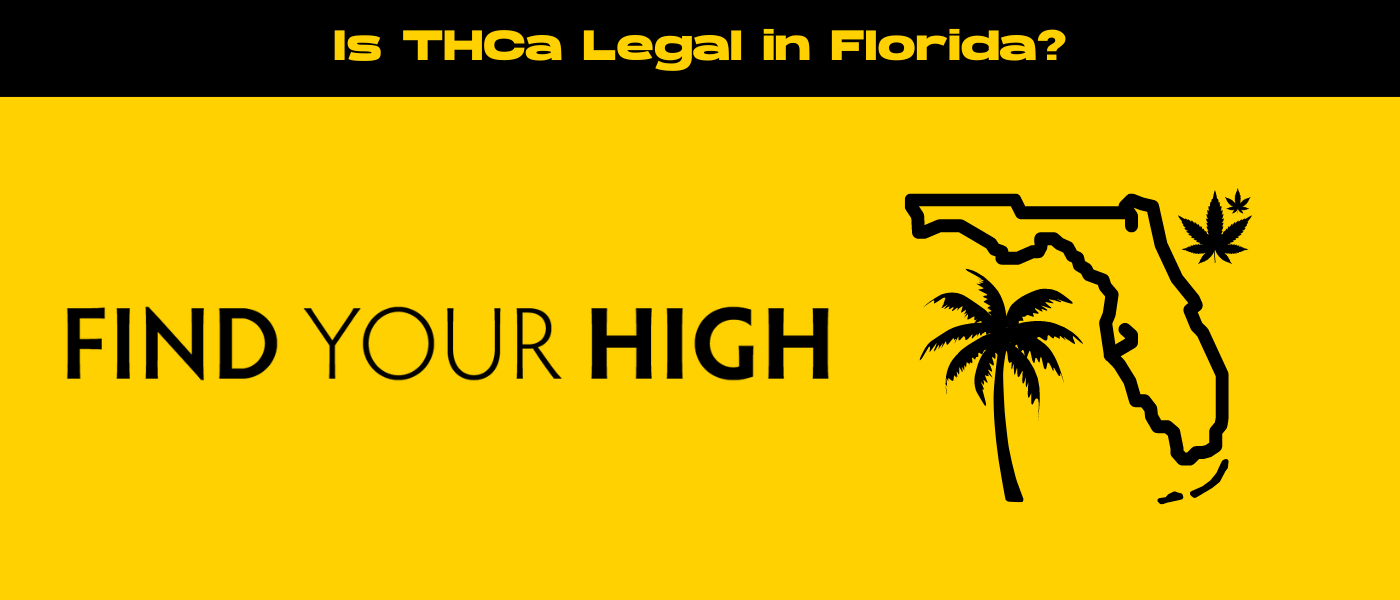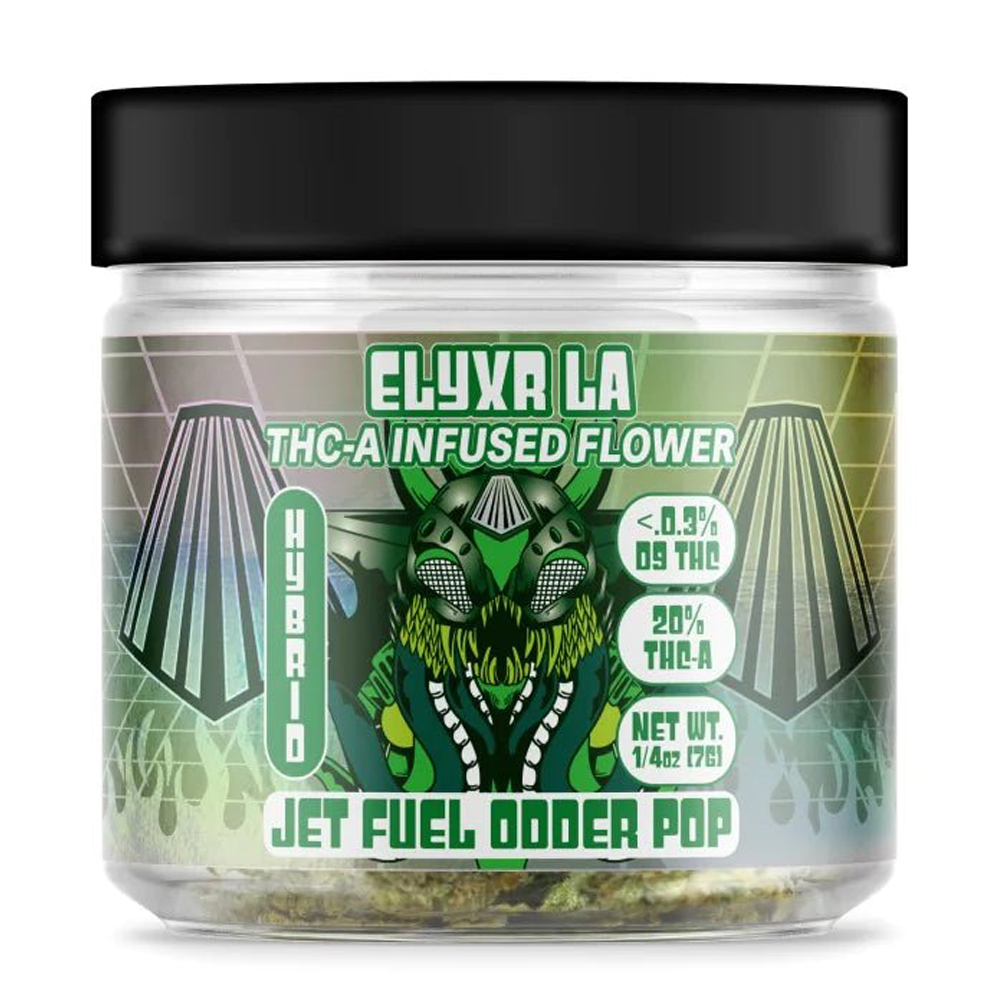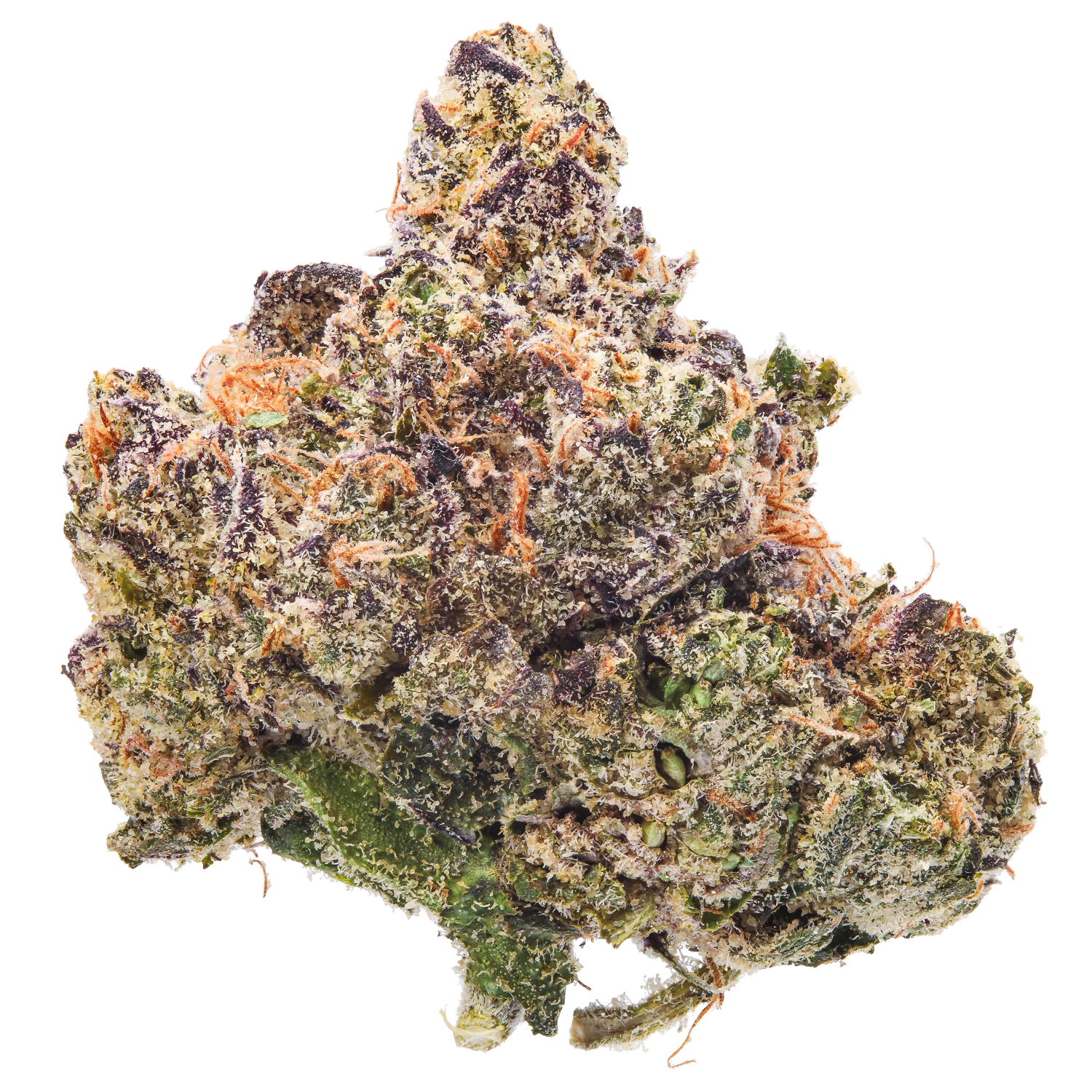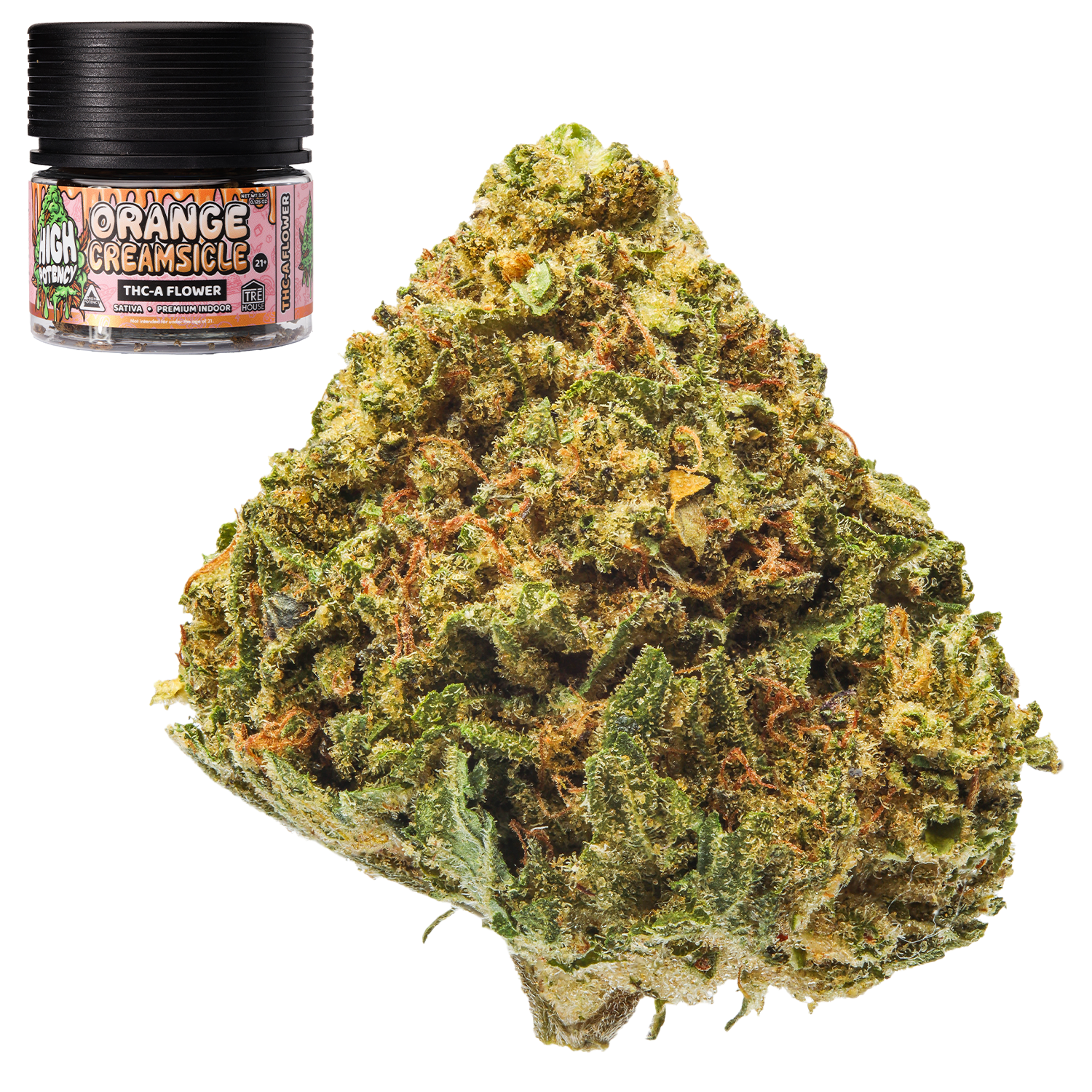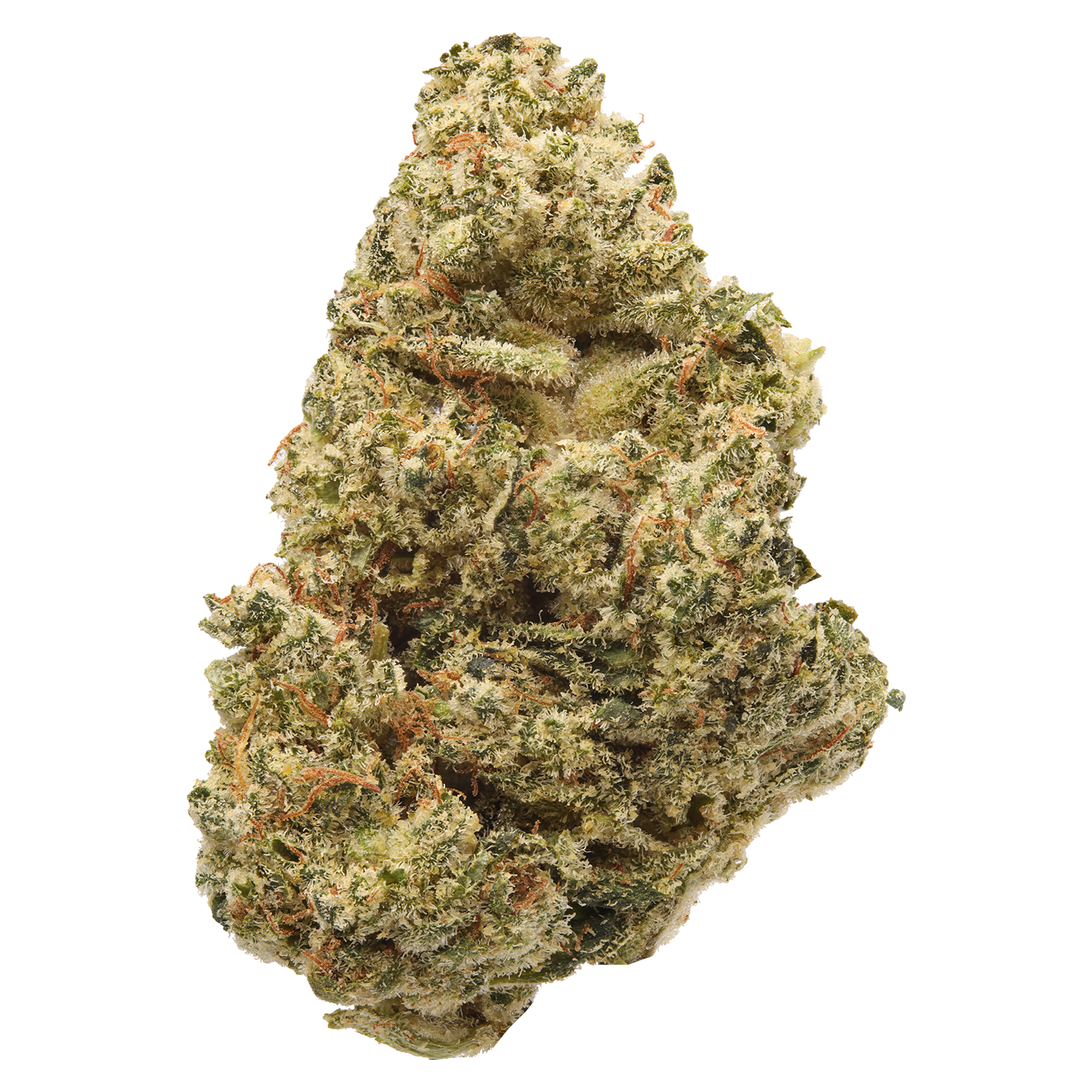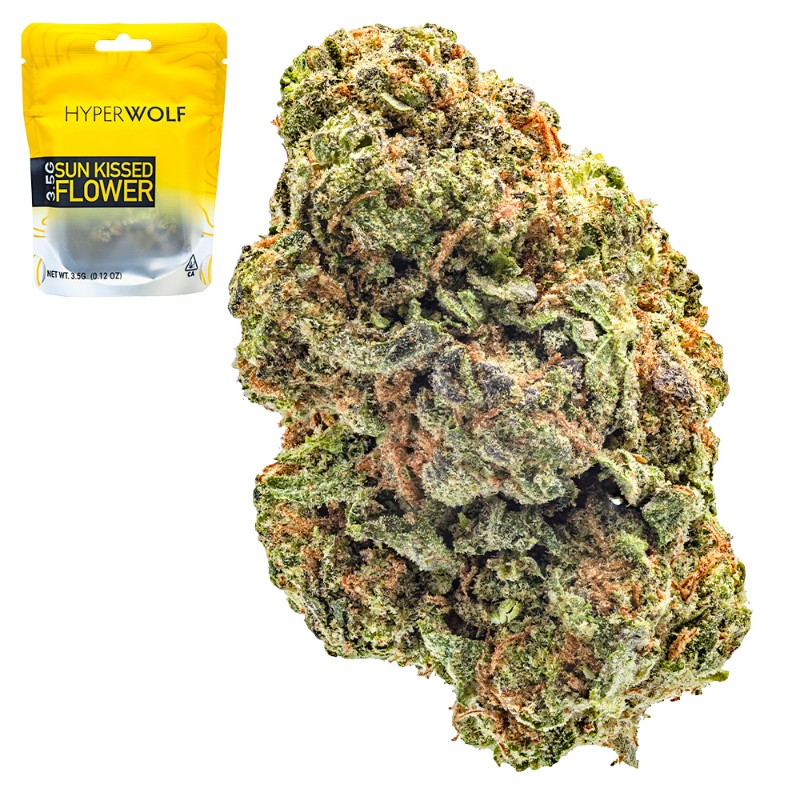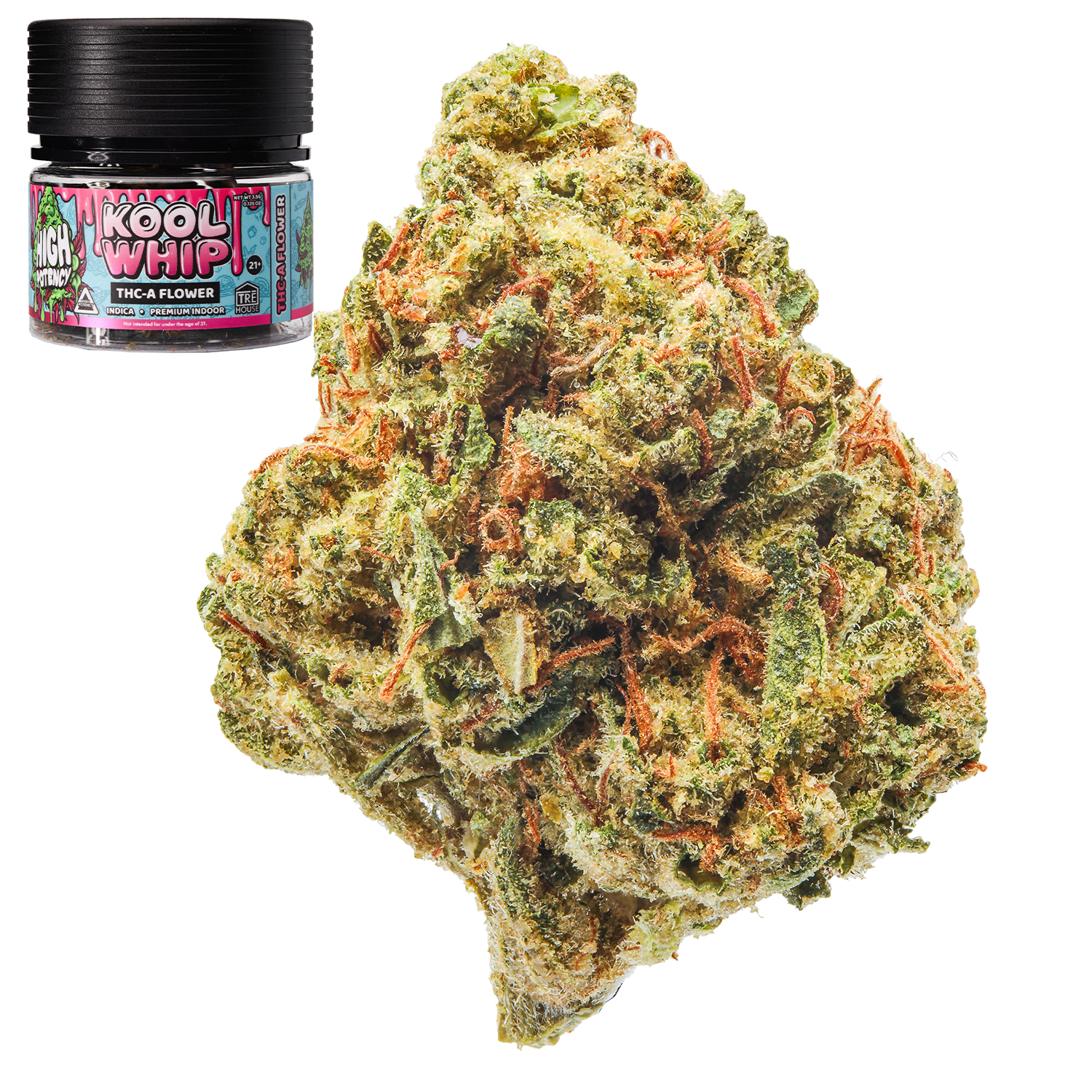As the cannabis industry continues to evolve in the United States, a growing number of consumers are becoming interested in cannabinoids like THCa.
But, with cannabis laws still complex and constantly changing, questions about the legal status of THCa are common—especially in states like Florida, where both medical marijuana and hemp-derived products are legal under certain circumstances. So, is THCa legal in Florida?
In this blog, we’ll explore whether THCa is legal in Florida, what distinguishes it from THC, and how Florida’s laws affect its use and availability.
Understanding THCa and its Legal Implications
THCa (Tetrahydrocannabinolic acid) is a cannabinoid found in raw cannabis plants. Unlike its cousin, THC (tetrahydrocannabinol), THCa is non-psychoactive, meaning it doesn’t produce the “high” commonly associated with cannabis use. However, THCa is the precursor to THC. When cannabis is heated or decarboxylated (through smoking or vaporization), THCa converts to psychoactive THC, which can induce the characteristic effects of marijuana.
Given that cannabis laws vary widely by state and federal jurisdiction, understanding the legal status of THCa, especially in Florida, is crucial for both medical marijuana patients and general consumers. This blog will dive into whether THCa is legally permissible in Florida, what factors influence its legal status, and what you should know before purchasing or using THCa products in the state.
What Is THCa?
THCa is a naturally occurring compound found in cannabis plants, particularly in their fresh, raw state. As a non-psychoactive cannabinoid, THCa does not produce the euphoric, mind-altering effects typically associated with cannabis use. It is part of the plant’s natural makeup before any heating or processing occurs, making THCA flower a popular choice for those seeking the raw, unaltered benefits of cannabis
When cannabis is heated (through smoking, vaping, or cooking), THCa undergoes a chemical process called decarboxylation—this is where it is converted into THC, which is psychoactive. Because of its lack of intoxicating effects, THCa has been gaining attention for its potential therapeutic benefits.
THCa can be found in several forms:
- Fresh cannabis (raw flowers and leaves).
- THCa concentrates: Extracted for use in tinctures, edibles, or vaporized products.
- Live resin: A cannabis concentrate made from freshly harvested plants.
How THCa Differs from THC
While THCa and THC are chemically related, there are several key differences that affect both their effects and legality.
- Chemical Composition: THCa and THC share a similar molecular structure, but THCa has an additional carboxyl group (COOH) that makes it non-psychoactive. When this carboxyl group is removed (through heat), THCa converts into THC, which is responsible for the characteristic high.
- Psychoactive Effects: THC is well known for its ability to induce a high, whereas THCa does not have this effect. This makes THCa appealing for individuals who want the potential therapeutic benefits of cannabis without the intoxicating side effects.
- Potential Therapeutic Uses: Early research suggests that THCa may offer a variety of health benefits, including anti-inflammatory, neuroprotective, and anti-nausea effects. These potential uses make it a compound of interest for medical cannabis patients, particularly those seeking relief without experiencing a high.
Cannabis Laws in Florida: A Quick Overview
Florida’s approach to cannabis legality can be summarized by two key laws:
- Florida Medical Marijuana Legalization Amendment (2016): This amendment legalized medical marijuana for patients with qualifying conditions. As a result, medical marijuana dispensaries operate legally within the state, providing patients with a range of cannabis products, including THC and CBD products.
- Hemp-derived products: In 2018, Florida passed legislation allowing the sale and use of hemp-derived CBD products, as long as they contain less than 0.3% THC. These products are sold widely in stores and online, although they must adhere to strict regulations to ensure they meet the THC threshold.
Since THCa is a non-psychoactive precursor to THC, its legal status is tied closely to these broader cannabis regulations. However, the legal landscape is nuanced, particularly when it comes to products that may contain THCa in varying concentrations or recreational marijuana.
The Difference Between Hemp and Marijuana Under Florida Law
In Florida, the distinction between hemp and marijuana is crucial when it comes to cannabis law. Both hemp and marijuana are varieties of the cannabis plant, but they differ primarily in their THC content.
- Hemp: According to the 2018 Farm Bill, hemp is defined as cannabis with less than 0.3% THC by dry weight. Hemp-derived products are legal at the federal level, and many hemp-based cannabinoids, including CBD, are available for sale in Florida.
- Marijuana: Marijuana is cannabis that contains more than 0.3% THC and is regulated differently than hemp. In Florida, marijuana remains illegal for recreational use, but it is legal for medical use under the Florida Medical Marijuana Legalization Amendment. Patients with qualifying conditions can access medical marijuana through licensed dispensaries.
Because THCa is present in both hemp and marijuana plants, the question arises: Is THCa legal in Florida? The answer depends on the source of the THCa and the THC content of the product.
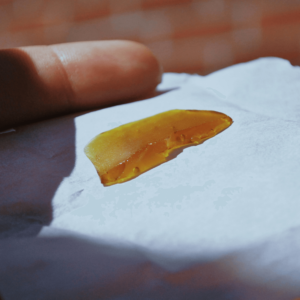
Is THCa Legal in Florida?
In Florida, the legality of THCa hinges on whether it is derived from hemp or marijuana:
- Hemp-derived THCa: THCa that comes from hemp (cannabis plants containing less than 0.3% THC) is generally legal under Florida law, in line with the federal legalization of hemp products. This means that THCa products derived from hemp are legal to buy, sell, and possess in Florida, as long as they comply with the THC content requirements.
- Marijuana-derived THCa: If the THCa comes from marijuana (cannabis containing more than 0.3% THC), it may be subject to Florida’s medical marijuana laws. Marijuana-derived THCa products are only legal for patients with a Florida medical marijuana card and can only be purchased from a licensed medical marijuana dispensary.
The main takeaway here is that hemp-derived THCa is legal, while marijuana-derived THCa is only legal for medical use and under strict regulation.
THCa and Medical Marijuana in Florida
For those with medical marijuana cards in Florida, accessing THCa products through licensed dispensaries is possible. However, because THCa is non-psychoactive, it’s often less common than THC-rich products in the dispensary market.
Florida’s medical marijuana program has specific guidelines regarding the sale and distribution of cannabis products:
- Registered patients can purchase THC products (such as flower, concentrates, and edibles) through dispensaries.
- THCa products may be available, particularly in forms like THCa concentrates or raw cannabis that patients can consume before heat activation (e.g., in tinctures or vaporizers).
As the medical marijuana program evolves, we may see more products with a focus on THCa, especially as research continues into its benefits.
THCa and the Farm Bill: The Federal Perspective
When it comes to THCa and federal law, many consumers may find themselves confused. At the federal level, the 2018 Farm Bill legalized the cultivation and sale of hemp (cannabis with less than 0.3% THC). This bill allows for the widespread sale of hemp-derived products, including CBD, THCa, and other non-psychoactive cannabinoids, as long as they comply with the THC threshold.
- Hemp-derived THCa: Under the 2018 Farm Bill, THCa derived from hemp is legal nationwide, including in Florida. However, it’s important to remember that the product must comply with federal regulations regarding THC content—it must not exceed 0.3% THC.
While the 2018 Farm Bill legalized hemp-derived THCa, this doesn’t mean that THCa products derived from marijuana are universally legal. Marijuana remains illegal at the federal level, even though many states (including Florida) have legalized it for medical or recreational use.
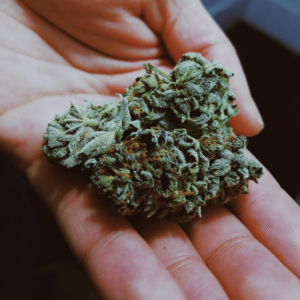
How THCa Is Regulated in Florida
In Florida, the regulation of THCa products varies based on whether they come from hemp or marijuana:
- Hemp-derived THCa: These products are subject to oversight from the Florida Department of Agriculture and Consumer Services (FDACS). Hemp-derived THCa products are sold in retail stores, as long as they meet the federal THC threshold of 0.3%.
- Marijuana-derived THCa: These products fall under the Florida Department of Health and the Office of Medical Marijuana Use (OMMU). They are regulated by Florida’s medical marijuana program and are only available to registered medical marijuana patients.
As with any cannabis-related product, product testing is critical to ensure compliance with state and federal laws, especially when it comes to THC content.
What About THCa Products and Cannabis Testing?
Testing is vital for ensuring that THCa products comply with legal limits for THC content. Products must be carefully tested to verify that they contain less than 0.3% THC if they are derived from hemp. Failure to meet this standard could result in the product being classified as illegal marijuana.
In Florida, both medical marijuana products and hemp-derived products are subject to testing:
- Hemp products must be tested for THC content by licensed laboratories.
- Medical marijuana products are tested for potency, contaminants, and THC levels.
Consumers should always seek products with certificates of analysis (COAs) to ensure compliance with THC limits.
Risks of Purchasing THCa Products in Florida
While hemp-derived THCa is legal, there are still risks:
- Unregulated products may contain illegal levels of THC.
- Quality control issues: Some products may not be accurately labeled or may contain contaminants.
- Legal ambiguity: As cannabis laws evolve, there’s always a risk that laws governing THCa could change.
How to Legally Access THCa in Florida
In Florida, you can legally access THCa in two ways. First, hemp-derived THCa products are available from retailers across the state, as long as they comply with the federal 0.3% THC limit. Second, if you’re a registered medical marijuana patient, you can access THCa products from licensed dispensaries by showing your Florida Medical Marijuana Card.
If you’re shopping online, Hyperwolf is your go-to source. At Hyperwolf LA, we offer a wide range of top-quality hemp-derived THCa products that meet all legal requirements. Visit us today to discover premium THCa options designed with your needs in mind!
Conclusion: The Future of THCa Legality in Florida
Currently, hemp-derived THCa is legal in Florida, while marijuana-derived THCa is restricted to medical use. As cannabis laws continue to evolve, it’s essential for consumers to stay informed about regulatory changes and ensure they are purchasing from reputable sources. Always check for product testing and certificates of analysis to avoid any legal issues related to THC content.
With the increasing interest in non-psychoactive cannabinoids like THCa, we may see more legal clarity and product availability in the future.
Frequently Asked Questions
1. Is THCA sold in Florida?
Yes, THCa is sold in Florida. You can find hemp-derived THCa products at various retailers statewide, as long as they meet the federal legal limit of 0.3% THC. If you’re a medical marijuana patient, you can also access THC products from licensed medical dispensaries with your Florida Medical Marijuana Card.
2. In what states is THCA legal?
THCa is legal in most states, but the specific laws can vary depending on whether the product is hemp-derived or medical marijuana-derived. In general, hemp-derived THCa products are legal in states that comply with the 2018 Farm Bill, which allows hemp products containing less than 0.3% THC. For medical marijuana-derived THCa, legality depends on the state’s medical marijuana program and whether you are a registered patient. Always check local regulations to ensure compliance.




